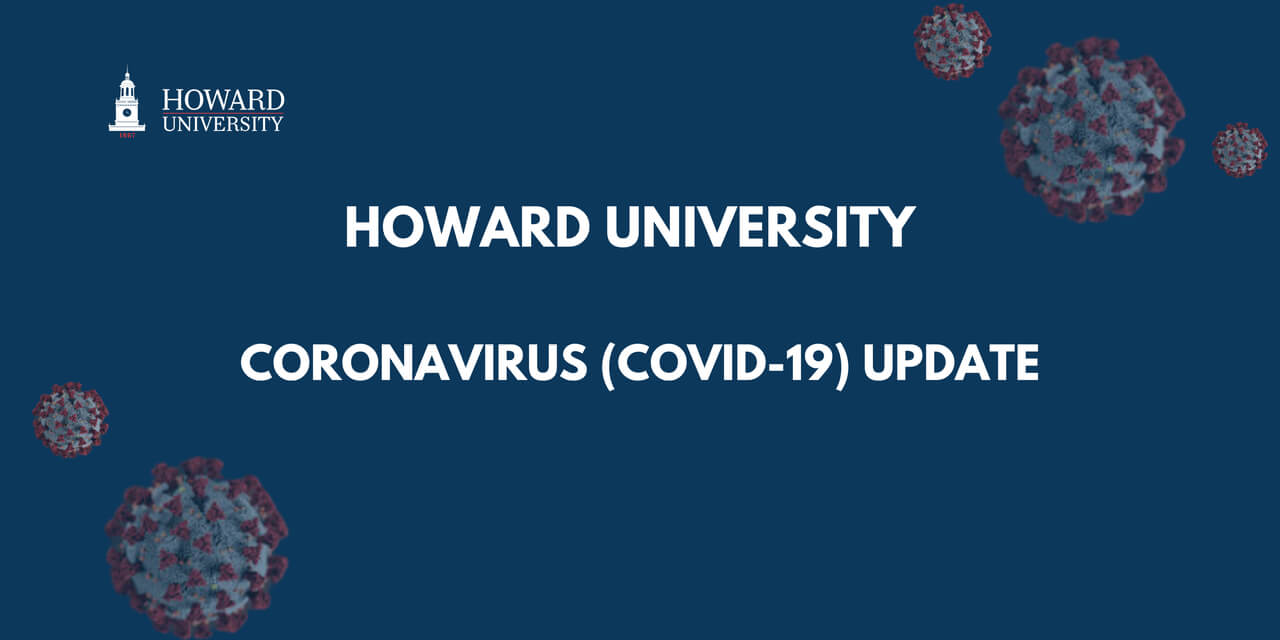
Dear Howard University Community,
The University continues to closely monitor the spread of COVID-19, also known as the coronavirus, as additional cases are confirmed in the United States and other countries. China continues to be the country most adversely impacted by diagnosed cases and mortality. South Korea and Japan also have reported over 900 diagnosed cases, with a significant number of cases also being reported in Iran and Italy. This is a rapidly changing situation, appropriate resources are being allocated at the University to continue to monitor, develop and execute plans to maintain the safety and well-being of our community. At this time, there are still no confirmed cases of coronavirus at Howard University or in the District of Columbia.

Information about international travel:
Following the recommendations of the CDC, and the U.S. Department of State, the University continues to temporarily prohibit University-sponsored travel of students to mainland China, and also to South Korea. We recommend caution in the preparation of travel to Japan, Iran and other countries with significantly increasing caseloads. Faculty and staff must continue to obtain approval through the Office of the Provost for proposed sponsored travel to China and South Korea. The University strongly recommends that everyone reconsider even personal travel to significantly impacted countries at the present time.
If you must travel to an impacted country, you should:
- Avoid contact with sick people.
- Discuss international travel with your healthcare provider. Older adults and travelers with underlying health issues may be at risk for more severe disease.
- Avoid animals (alive or dead), animal markets, and products that come from animals (such as uncooked meat).
- Wash hands often with soap and water for at least 20 seconds. Use an alcohol-based hand sanitizer if soap and water are not available.
If you traveled to China, South Korea, Japan, or another significantly impacted country in the last 14 days and feel sick with fever, cough, or difficulty breathing, you should:
- Seek medical care right away. Before you go to a doctor’s office or emergency room, call ahead and tell them about your recent travel and your symptoms.
- Avoid contact with others.
- Not travel while sick.
- Cover your mouth and nose with a tissue or your sleeve (not your hands) when coughing or sneezing.
- Wash hands often with soap and water for at least 20 seconds. Use an alcohol-based hand sanitizer if soap and water are not available.
According to the CDC, symptoms of COVID-19 may appear in as few as two days or as many as 14 days after exposure. The illness can be more serious for individuals with a weakened immune system, older adults or those with underlying respiratory problems.
We recognize that this is an uncertain time and that some members of our community may be feeling additional stress, especially if they have family in affected areas. For additional information, please visit the CDC website at https://www.cdc.gov/coronavirus/2019-ncov/index.html. We will continue to monitor the situation and update the campus community as circumstances evolve. Thank you.
Excellence in Truth and Service,
Anthony K. Wutoh, Ph.D., R.Ph.
Provost and Chief Academic Officer




